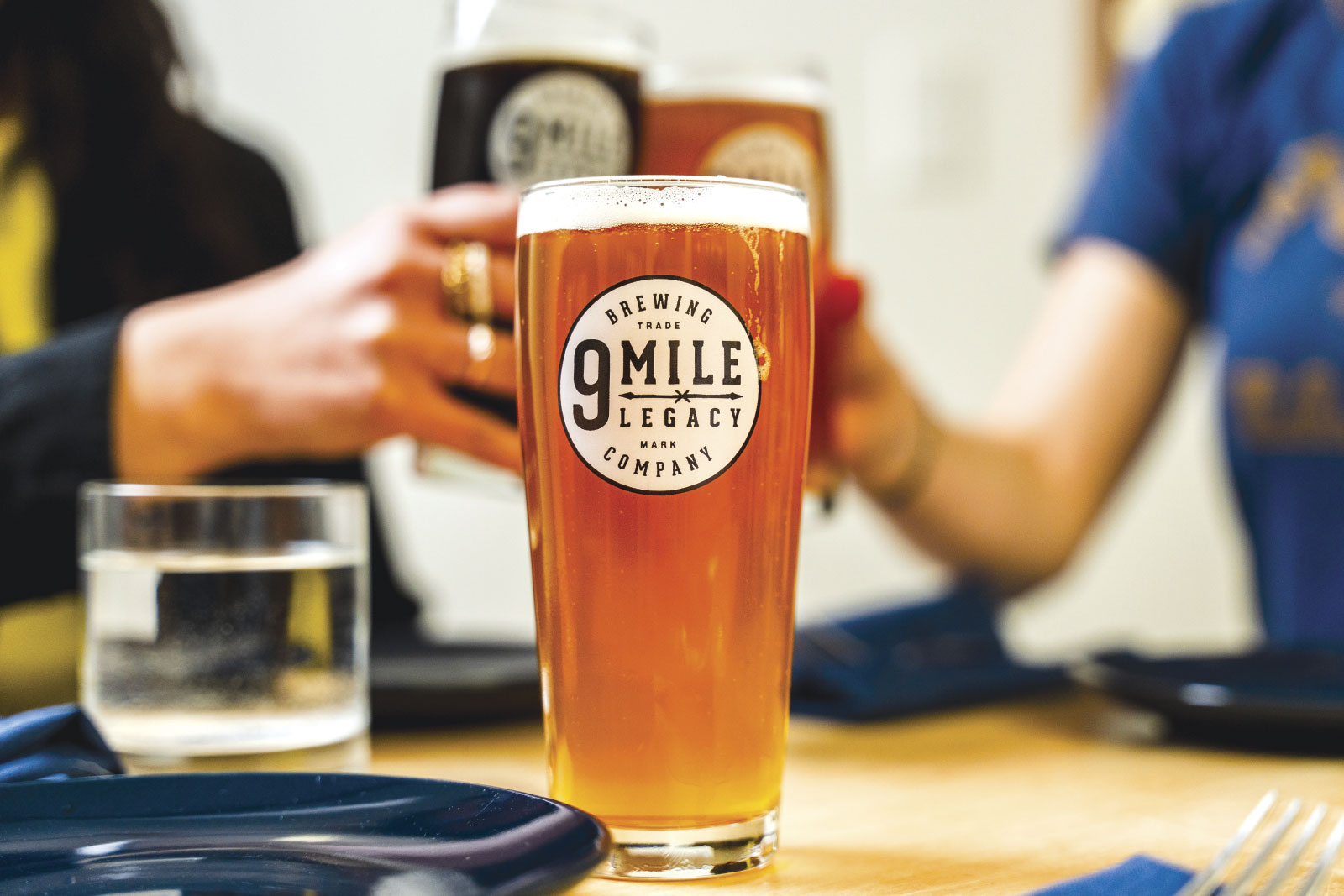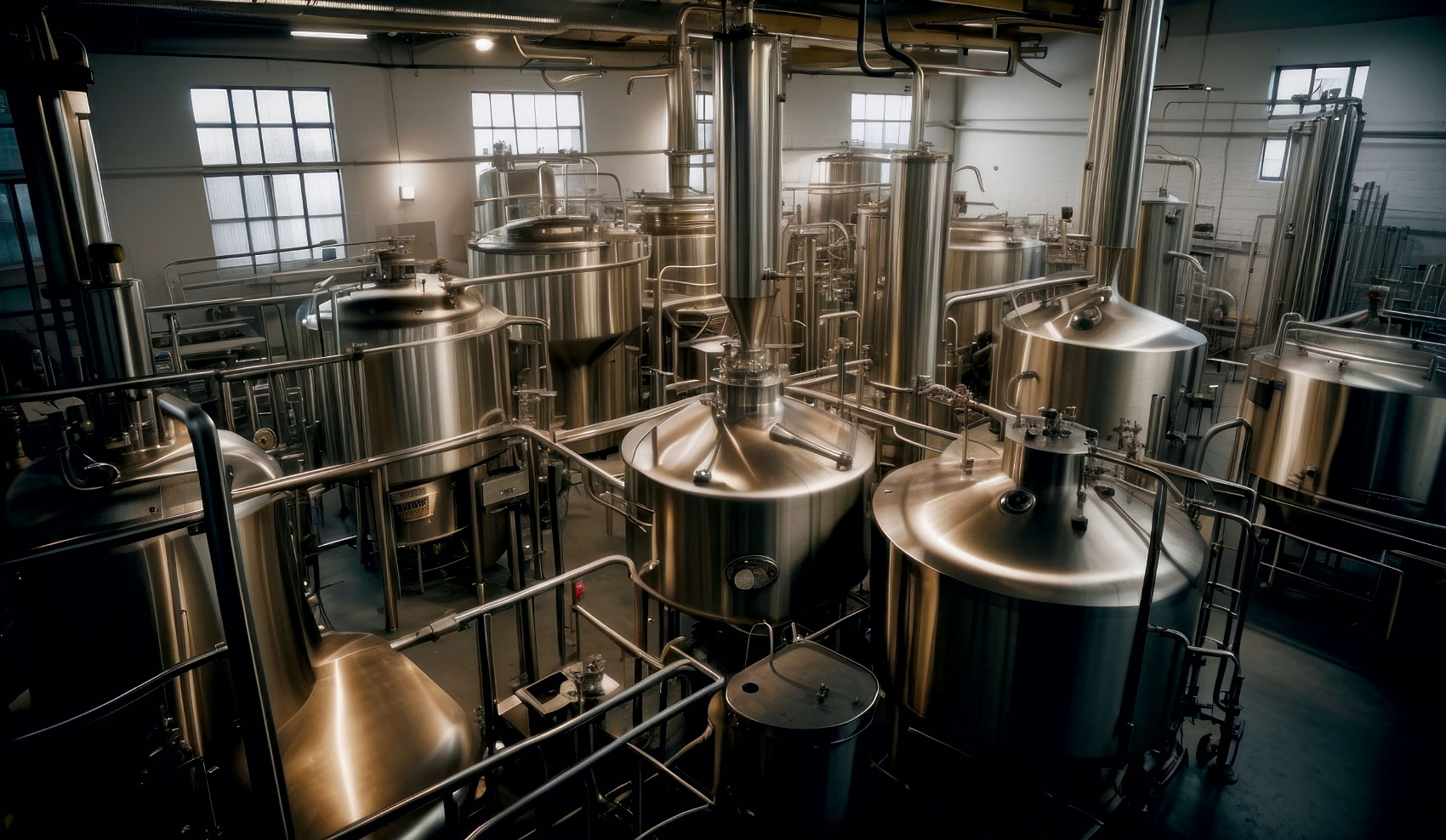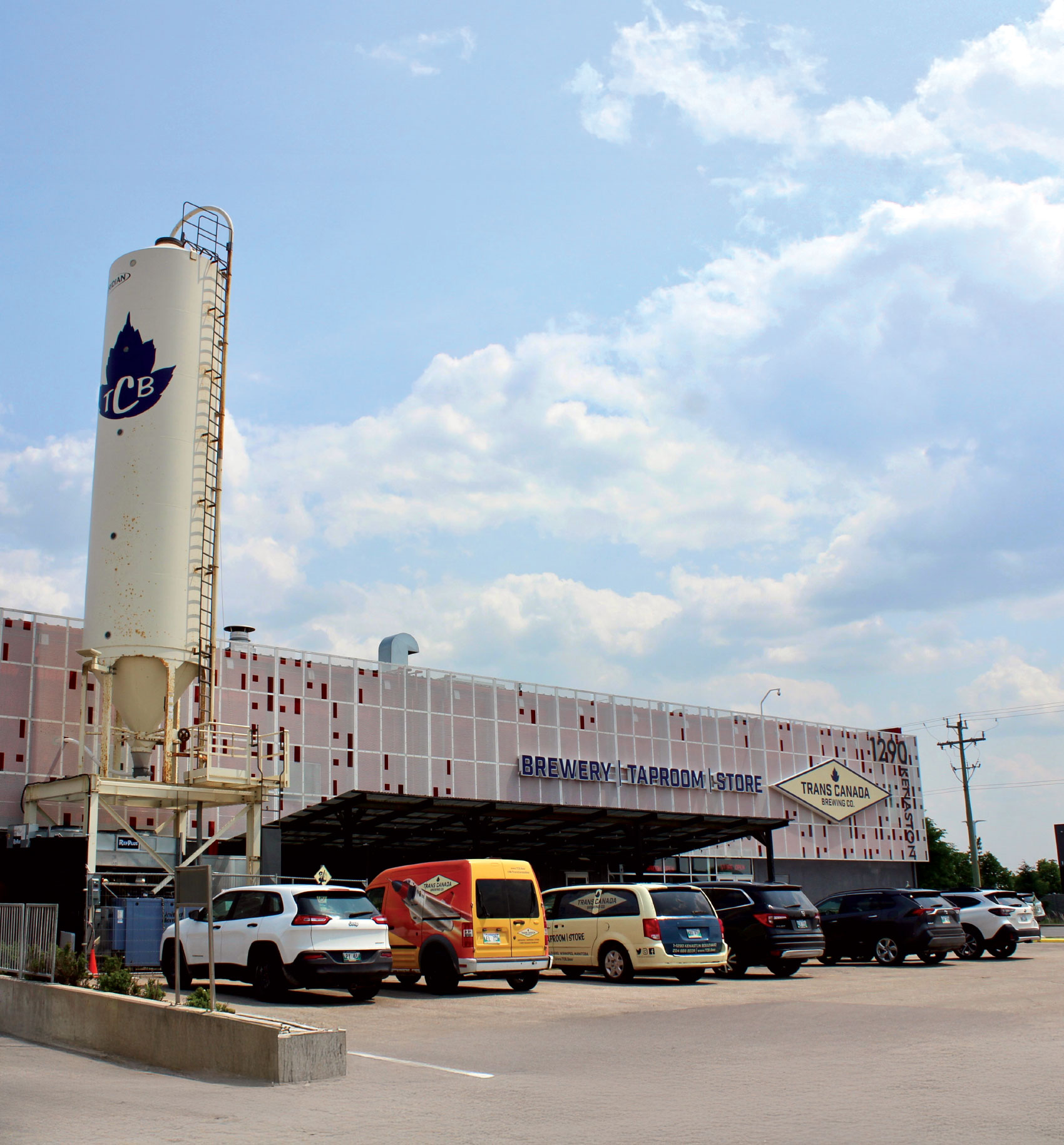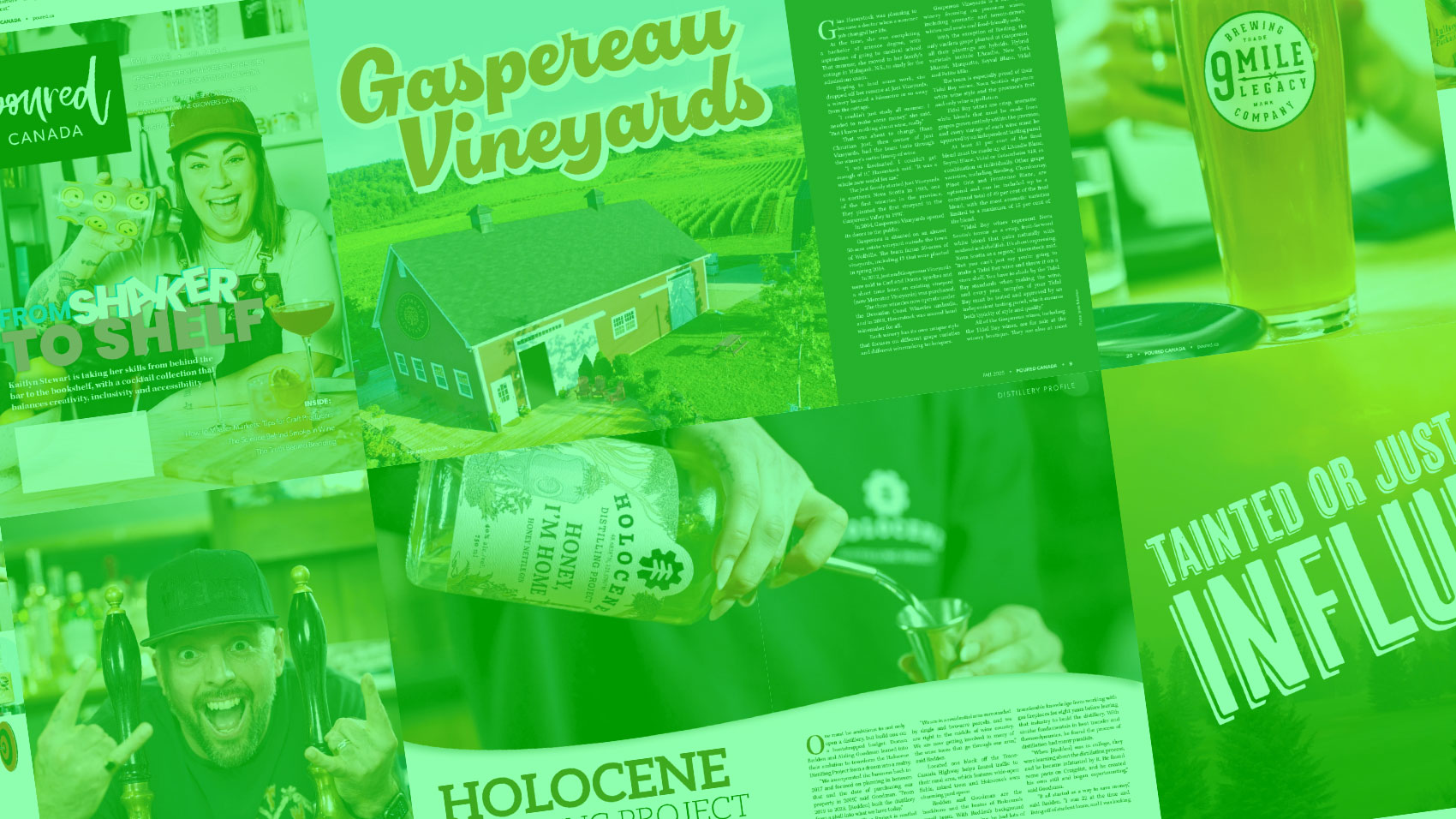A legacy is built on the past, but it impacts the future. The story of Saskatoon’s 9 Mile Legacy Brewing began five generations ago.
“The original Moen and Pederson homesteads were located nine miles apart in southwest Saskatchewan,” said Cassy Appelt, director of LGCY: Innovation Hub, a division of 9 Mile Legacy Brewing. Appelt is referring to 9 Mile Legacy founders Shawn Moen and Garrett Pederson, who have continued a family friendship now over a century long. “Through their business partnership, [Moen] and [Pederson] are the fifth generation to collaborate and work together, but the first to do so off the farm,” she said.
Moen, a lawyer, and Pederson, an environmental consultant, were lifelong friends and avid homebrewers, travelling the world to learn about brewing and business. In 2015, with stable careers and much travel now behind them, 9 Mile Legacy Brewing was born.
“[It]began as an exceptionally small nanobrewery focused on the production of high-quality craft beer,” said Appelt. “They got their start with a 100-litre brew kit with a storefront in Riversdale, one of Saskatoon’s original neighbourhoods and the heart of most city events and festivals. They purchased and restored a beloved business front in the same neighbourhood … and opened a taproom with a 600-litre brewery in 2018. In 2020, [they] expanded to a production facility just a few blocks away from the taproom. In 2023, [they] made the decision to close the taproom and focus on distribution out of [their] larger facility. That taproom is now a world-class comedy club known as Art Bar Theatre.”
A brewery for the community
The brewery has grown from its original one-hectolitre brewery to a two-vessel, six-hectolitre brewery and now to a modern, three-vessel, 20-hectolitre brewery. Both the six-hectolitre brewery and the 20-hectolitre breweries were made by Canada’s Ripley Beverage. They still use their 20-hectolitre brewhouse and tank complement their commercial operation, and the smaller, six-hectolitre brewhouse and tank completment form the basis of LGCY. Despite having grown by multiples, 9 Mile Legacy remains steadfastly tied to its community.
“[Moen] and [Pederson] are still actively involved in the day-to-day operation of the brewery, [Moen] as CEO and [Pederson] as COO and head brewer,” said Appelt. “They strive to continually incorporate their values of being authentic and engaged community members that foster interconnection, collaboration and innovation as 9 Mile grows and changes.”
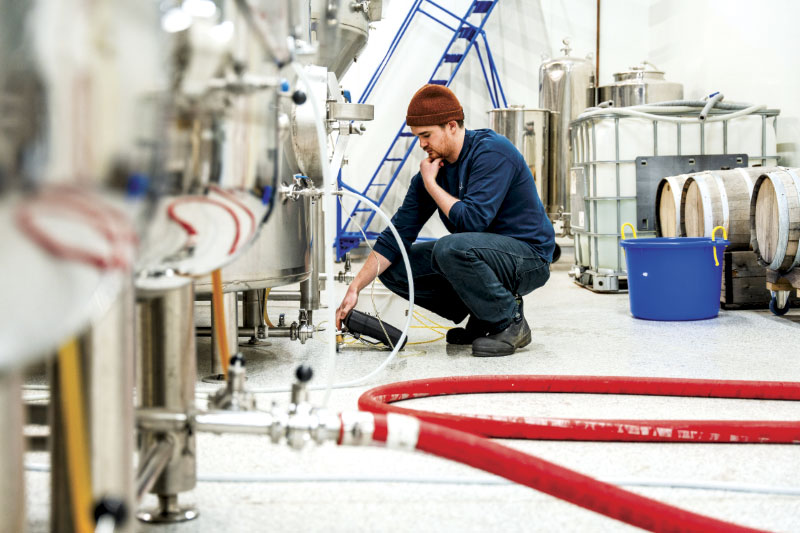
To that end, 9 Mile Legacy has always collaborated with friends and neighbours. One of the earliest was a custom beer – still made today – for Odd Couple, an Asian fusion restaurant across 20th Street from the brewery taproom. However, that first collaboration has grown into many more, including an extensive Festival Series of beers, where collaboration beers are made in partnership with most of the festivals in Saskatchewan, with proceeds supporting the festivals.
The brewery is also the craft beer sponsor of Saskatoon’s new Minor League Baseball team, the Saskatoon Berries Baseball Club. It is because of this deep connection with the local community that, despite 10 years of operations and incredible growth and success, “we’re still seeing meaningful sales growth throughout Saskatchewan,” says Appelt. The brewery’s beers can be found in almost 300 locations across the province, with 9 Mile Legacy handling all of its own distribution.
“We’ve flirted with other markets in neighbouring provinces, but for the time being, we continue to see growth in Saskatchewan markets year to year and continue to focus our energy on the continued development of this market,” said Appelt.
A scientific approach to brewing
The brewery takes a scientific approach to brewing. “We follow a structured development approach we call nano-iteration: starting with small-scale, data-driven experiments, refining based on results and integrating new knowledge as we scale to meaningful commercial volumes,” said Appelt. “This approach allows us to innovate with confidence, balancing creativity with consistency.”
The top-selling beers are 9 Mile Legacy’s Ticket Belgian Blonde and their West Cast IPA, Rafiki Moja. “In designing our beer, we continue to prioritize the creation of balanced, interesting and unique products, combining the success of traditional, well-established beer styles with innovative brewing techniques and creative ingredients,” said Appelt. The brewery offers a core lineup including the aforementioned Ticket Belgian Blonde and Rafiki Moja IPA, along with Longview Pilsner, Eagles & Bulldogs Hazy IPA and Hybrid Vigour Amber Ale.
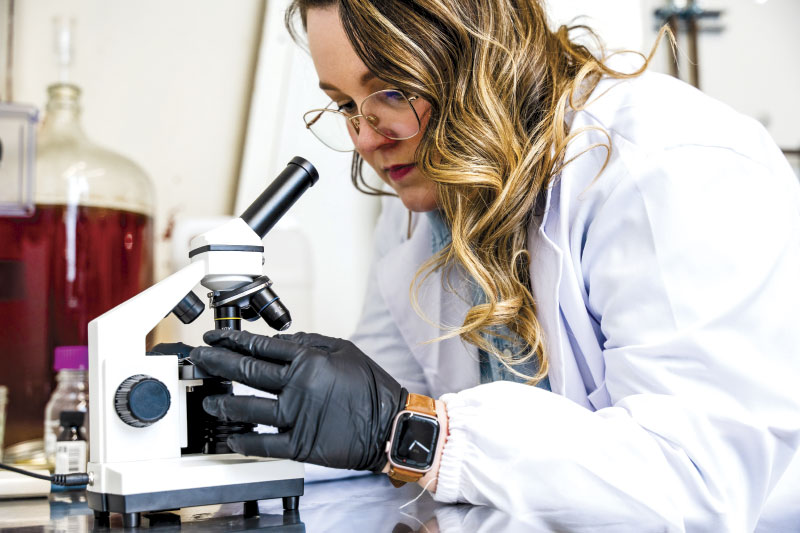
“We keep close to our roots as a nano brewery with our core seasonal lineup, offering our Straight Cut dry-hopped kettle sour, award-winning Angus Stout and the sought-after Ella Pacific Pale Ale. Our Nano-Select series features high ABV brews made in small batches with limited releases to highlight our take on premium experiences and traditional European styles with new world influence,” said Appelt.
Supporting the community means supporting the future
The brewery’s ties to the community are not limited to beer. In April 2024, 9 Mile Legacy created LGCY: Innovation Hub. “LGCY: Innovation Hub is many things, but one of the areas we’re passionate about is de-risking new ventures in the craft beverage space,” said Appelt. “We believe small businesses are a vital engine for innovation, and we know how challenging it can be to bring a new idea to market, especially when you’re starting out on your own.
“The Innovation Hub is designed to make that journey less risky and more accessible. We provide access to both startup and commercial-scale brewing equipment, available for rent, so entrepreneurs don’t need to make major capital investments before testing their concepts. Beyond equipment, we offer the support of skilled staff who can help fill knowledge gaps, whether that’s brewing operations, fermentation science or navigating the craft beverage industry for the first time. By pairing hands-on infrastructure with targeted expertise, LGCY gives local brewers and startups the tools and confidence to develop, refine and scale their ideas, turning early-stage concepts into viable, market-ready products.”
Despite having grown by multiples, 9 Mile Legacy remains steadfastly tied to its community.
With LGCY just over a year old, it has been used to test specialty yeasts and enzyme-based process improvements to new prairie-grown ingredients. “There’s a lot of room to innovate in the craft beverage space, and we see beer not just as a product, but as a platform – an ideal way to test and prove new processes, ingredients and biotech initiatives under real-world production conditions,” said Appelt.
Moen and Pederson hold respective positions with the Saskatchewan Chamber of Commerce and the Brewing and Malting Barley Research Institute. With collaborations with the University of Saskatchewan, LGCY : Innovation Hub is having an impact beyond beer. Of course, supporting the future also means being environmental stewards, something particularly important to 9 Mile Legacy given the founders’ family farm backgrounds.
“Environmental sustainability is an ongoing priority for us. In 2024, we completed an environmental impact assessment to identify opportunities to reduce our energy use, carbon dioxide consumption and water footprint,” said Appelt. “We’ve made practical changes to reduce wastage in our day-to-day brewing. We time our water rinses, and we collect trub and yeast in grain sacks when draining fermenters and boil kettles. Our spent grain is 100 per cent dedicated to feeding cattle, and we’ve worked with local chefs to highlight the value of this circular economy approach, transforming brewing byproducts into food for livestock.”
Such environmentally-conscious activities are not uncommon to brewers, but 9 Mile Legacy goes a few steps beyond.

“We also explore innovative uses for brewing waste. Past collaborations have included creating alternative sugar syrups and bio-based fuels from spent grain. This fall, our LGCY: Innovation Hub will host a biotech startup project where we will be testing an existing malt syrup produced from spent grain as a potential malt replacement in brewing,” said Appelt. “In addition, through LGCY, this past year we’ve worked with Novonesis, a global leader in bio solutions – sustainable, biology-based technologies such as enzymes and microbes – to assess the use of their enzyme cleaners in our fermenters. These trials have shown potential to improve wastewater pH, reduce water consumption and lower the energy required for cleaning, aligning with our commitment to environmentally responsible operations.”
Being a part of the beer community
While supporting festivals, the broader business community and the scientific research community, 9 Mile Legacy supports the beer community as well.
“The majority of our ingredients are Canadian-grown. We source almost all of our malt from Prairie Malt and Maker’s Malt, a boutique maltster in Rosthern, Sask. Nearly all the inputs we use in the mash come from Saskatchewan, with a small portion from Alberta,” said Appelt. “Our yeast is supplied by RahrBSG and AEB. We mostly use dry yeast, but we’ve done a number of high-profile brew experiments this year using liquid pitch from Novonesis to reduce fermentation time and increase operational outputs.”
As an active member of Beer Canada, 9 Mile Legacy enjoys its access to comprehensive, cross-country economic data. “For a small business, that information is truly invaluable,” said Appelt. “It gives us a clear view of market trends and industry-wide performance, allowing us to make informed, strategic decisions. Whether we’re assessing growth opportunities, fine-tuning production or weighing the risks of entering a new market, this data helps ensure our choices are grounded in a strong understanding of the broader industry landscape.”

